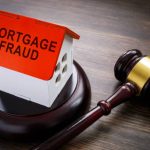Mortgage Loan Fraud Audits: Securing Your Financial Future with Securitization Loan Audits
Mortgage loan fraud is a significant issue that threatens both individuals and the broader financial system. As real estate markets grow and evolve, so do the methods employed by fraudsters to exploit loopholes and vulnerabilities in the mortgage loan process. However, mortgage loan fraud audits, especially those that focus on securitization loan audits, have become a powerful tool in detecting fraud, identifying financial discrepancies, and safeguarding investors, lenders, and borrowers alike. This blog will explore the importance of mortgage loan fraud audits, how securitization loan audits play a pivotal role in identifying fraudulent activities, and the benefits of incorporating fraud prevention measures. By the end, you will understand how these audits can help secure your financial future and why it’s crucial to take proactive measures.
1. Understanding Mortgage Loan Fraud
Mortgage loan fraud occurs when false or misleading information is intentionally provided during the mortgage application process. This can include fabricating income documents, inflating property values, misrepresenting the borrower’s financial situation, or using stolen identities to secure loans. Fraudsters often aim to deceive lenders or investors to gain access to funds under false pretenses, and these activities can have severe consequences for the economy, financial institutions, and homeowners.
Mortgage fraud can take many forms, including but not limited to:
- Income and Employment Fraud: When borrowers exaggerate their income or falsify employment history to meet lender requirements.
- Appraisal Fraud: When the value of the property is inflated through misleading appraisals, which leads to inflated mortgage amounts.
- Identity Theft: Fraudsters using stolen identities to apply for mortgages under someone else’s name, effectively committing fraud.
- Foreclosure Rescue Fraud: In which scam artists trick distressed homeowners into paying fees for services that never materialize, all while exploiting the homeowner’s financial difficulties.
Each of these types of fraud can have significant financial repercussions, affecting not only the individual involved but also lenders, servicers, and the entire housing market. Mortgage loan fraud can result in bad debt, foreclosure, or even large-scale financial crises. Therefore, timely and accurate audits are essential in minimizing the risk and identifying fraud before it causes irreversible damage.
2. The Role of Mortgage Loan Audits in Fraud Prevention
Mortgage loan audits are a critical process in detecting fraud. These audits involve thoroughly examining all aspects of a mortgage loan, from the application and documentation to the servicing and payoff. Mortgage audits are typically performed by professionals who scrutinize loan documents to identify inconsistencies, errors, or omissions that could signal fraudulent activity.
One of the key ways that mortgage loan audits help to prevent fraud is by identifying discrepancies between what the borrower claims and the information provided by the lender, servicer, or borrower. A mortgage audit will check for:
- Incorrect or Missing Documentation: Many types of fraud involve fabricated or altered documents. A comprehensive audit ensures that all required paperwork, such as income verification, tax returns, and asset declarations, are present and accurate.
- Loan Terms Misrepresentation: Auditors ensure that the loan terms match what was agreed upon, especially in cases of adjustable-rate mortgages or other complex loan structures.
- Errors in Underwriting: Audits also assess the underwriting process, ensuring that the loan was approved based on valid and verifiable information. Missteps here can expose both the borrower and lender to risk.
- Default and Foreclosure Investigations: For loans that are already in default or foreclosure, audits can provide insight into potential fraudulent activities that may have contributed to the borrower’s inability to pay or the lender’s loss.
Without audits, these discrepancies may go unnoticed until it’s too late, often resulting in severe financial losses or legal consequences. Mortgage loan audits act as an early warning system, providing lenders with the chance to review and correct any issues before they escalate.
3. Securitization Loan Audits: A Comprehensive Approach to Fraud Detection
Securitization is a common practice in which mortgage loans are bundled together and sold to investors as mortgage-backed securities (MBS). These securities are then traded on financial markets, creating liquidity for lenders and investors. However, this process is not immune to fraud.
Securitization loan audits are specialized audits that focus on mortgage loans that have been securitized. They are a vital tool in detecting fraud that may occur not only during the origination process but also throughout the life of the mortgage loan, especially when the loan is pooled and sold as part of a securitized bundle.
There are several key benefits of securitization loan audits, including:
- Verifying Compliance: Securitization loans must comply with various regulations, such as those outlined in the Securities Act and the Dodd-Frank Act. A securitization audit ensures that these compliance measures have been followed, identifying any violations that could lead to regulatory penalties or legal consequences.
- Identifying False Loan Origination Practices: Securitization audits focus on verifying whether the loans included in a securitized pool were originated properly and truthfully. This includes ensuring that all information provided during the origination process, such as income and asset verification, is accurate and compliant with industry standards.
- Tracking Loan Performance: By examining the performance of loans that have been securitized, auditors can identify any patterns of fraud or mismanagement, such as inflated property values or artificially created loan modifications. These discrepancies can raise red flags for investors.
- Risk Mitigation for Investors: Securitization audits can help investors understand the risks associated with their investments. By reviewing the underlying loans in a securitized pool, they can identify any potential fraud or errors in the documentation that could lead to significant financial losses.
Overall, securitization loan audits help to protect investors and ensure the integrity of the mortgage-backed securities market. They serve as an important tool in preventing fraud from spreading throughout the financial system and contribute to the long-term stability of the housing market.
4. Fraud Stoppers: How Mortgage Audits Safeguard Your Financial Interests
While mortgage loan fraud audits and securitization loan audits are critical for detecting and preventing fraudulent activity, a more proactive approach is necessary to ensure that fraud is stopped before it can cause significant damage. Fraud stoppers are a set of strategies and tools designed to prevent fraud from happening in the first place. These measures are incorporated into the auditing process to provide additional layers of protection.
Some of the key fraud-stopping measures include:
- Enhanced Document Verification: Using advanced technology to verify the authenticity of documents, such as using optical character recognition (OCR) tools to scan for altered text or digitally signing documents to prevent tampering.
- Automated Fraud Detection Tools: There are software tools available that can automatically flag suspicious activity, such as unusual patterns in loan applications or discrepancies in property valuations. These tools provide real-time fraud detection, allowing auditors to quickly address potential issues.
- Training and Education for Lenders and Borrowers: Educating stakeholders in the mortgage process is another key fraud-stopping strategy. When lenders, brokers, and borrowers understand the signs of fraud and how to spot potential fraud schemes, they are better equipped to prevent it.
- Third-Party Validation Services: Fraud prevention can also be bolstered by using third-party validation services. These services help to cross-check information provided by borrowers with external databases, such as income or employment verification systems, ensuring the details are correct.
By incorporating fraud stoppers into the auditing process, mortgage lenders and investors can dramatically reduce the chances of fraud impacting their portfolio. Additionally, these preventative measures can save both time and money by addressing fraudulent activities early on, before they escalate into significant financial losses.
5. The Benefits of Mortgage Loan Fraud Audits and Securitization Audits for Your Financial Future
Taking steps to ensure the integrity of your mortgage loans and investments through fraud audits can lead to substantial long-term benefits. Whether you’re a lender, investor, or borrower, the value of these audits cannot be overstated.
The key benefits of mortgage loan fraud audits and securitization loan audits include:
- Reduced Risk: The most immediate benefit of a fraud audit is the reduced risk of financial loss. By identifying fraudulent loans before they impact your portfolio, you minimize the risk of defaults, foreclosures, and legal disputes.
- Enhanced Transparency: Mortgage audits provide clarity on loan terms, repayment schedules, and the overall financial standing of the borrower. This transparency allows for better decision-making, reducing uncertainty in both the origination and securitization processes.
- Legal Protection: Fraudulent activities can lead to significant legal consequences, both for lenders and investors. Audits help ensure compliance with all legal and regulatory requirements, protecting you from potential lawsuits or penalties.
- Improved Loan Performance: Securitization audits help ensure that the loans in your portfolio are performing as expected. This allows you to make informed decisions about the management of those loans, potentially increasing returns on your investments.
- Fraud Prevention: By implementing fraud-stopping measures and continuously auditing loans, you are taking proactive steps to prevent fraud from infiltrating your financial systems, ensuring long-term security and profitability.
Mortgage loan fraud audits and securitization audits are integral components of a sound financial strategy. They not only help identify potential fraud but also provide peace of mind, knowing that your investments and financial transactions are protected.
Secure Your Financial Future with Confidence!
In today’s fast-paced financial landscape, the importance of mortgage loan fraud audits and securitization loan audits cannot be overstated. By identifying fraud early on, these audits provide a comprehensive safety net for lenders, investors, and homeowners alike. Don’t wait until it’s too late – protect your financial future with proactive audits and fraud prevention strategies.
Contact us today at (877)-399-2995 or visit Mortgage Audits Online to learn more. Secure your financial future with confidence!




